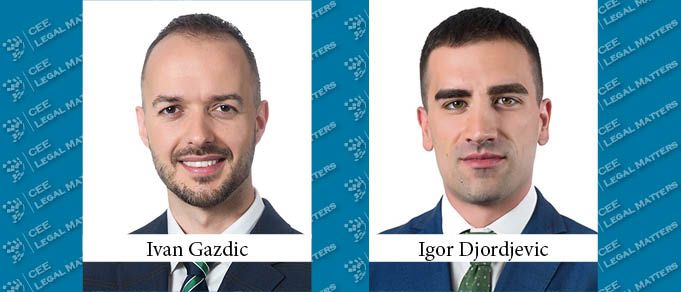With a total stock of over 800,000 square meters of office space and several large-scale office projects underway, Belgrade aims to further strengthen its position as a top choice for headquarters of investors operating in Serbia and SEE.
The country is witnessing a booming retail market with the opening of new shopping centers in Belgrade and the continuous development of retail parks throughout the country, as well as the expansion of industrial and logistics facilities.
So-called triple net leases (“NNN Leases”), under which a tenant pays all the expenses related to the property – including property tax, insurance, and maintenance (all of which are normally paid by the landlord), in addition to rent and utilities – are commonly used when renting A-class office or retail space. However, it is very common for such complex NNN Leases to contain provisions that may be challenged from a Serbian law perspective.
In some circumstances, parties choose to sign a simple one-page lease contract, in which case general legal provisions apply to all matters that are not explicitly governed by the contract. The problem is that the general rules that are traditionally applied are, in some circumstances, unclear or inappropriate.
For example, if the lease is concluded for an indefinite period without defining a notice period, the statutory notice period applies. In Serbia, this statutory notice period is only eight days, which is hardly enough time for a tenant to relocate its business to a new office without incurring significant losses and damages.
In fact, the legislation and practice of neighboring countries has addressed the need for special regulation of commercial leases. In Croatia, for instance, the statutory notice period for commercial leases concluded for an indefinite period is 30 days, although parties may stipulate a shorter notice period.
In Slovenia, the statutory notice period for the lease of business premises cannot be less than 12 months.
The Serbian Law on Obligations regulates the concept of lease in general (without making any distinction between leasing movables and immovable assets), instructing the legislator to enact a separate piece of legislation which will govern the lease of business premises in more detail. However, this task has not yet been addressed in a satisfactory manner.
Therefore, it is legitimate to consider whether we need special legal treatment for commercial leases. Some of the points that might be considered are: (i) written and enforceable forms of the lease agreement; (ii) the purpose of the use of the leased premises; (iii) regulation of common costs and service charges; (iv) regulation of fit-out works; (v) stipulation of a longer notice period if the contract is concluded for indefinite period; (vi) the right of sub-lease should be excluded unless the parties explicitly agree otherwise, etc.
We emphasize that most of these special rules should not be mandatory, and that the parties should be free to regulate their mutual relations in a different way, provided that it is not contrary to the mandatory provisions of applicable law.
All of these topics, and many others, have been appropriately addressed in specific regulations governing the lease of business premises in most neighboring countries, as well as in many other countries throughout Europe.
In Serbia, we anticipate that a special regulation (either through amendments to the existing Law on Obligations, as in Montenegro, or through the enactment of a separate law, as in Croatia) should mainly serve three purposes: (1) to stipulate a minimum of essential and mandatory provisions for the lease of business premises which cannot be amended by contract, in order to protect tenants who are sometimes effectively unable to negotiate terms of complex NNN leases; (2) to envisage an efficient mechanism for protecting landlords from tenants who do not pay rent, allowing easier enforcement of rent collection and eviction penalties (e.g., explicitly stipulating a written, notarized, and enforceable form of the lease); and (3) where the parties have concluded a one-pager, to answer most questions and reduce legal uncertainty.
By Ivan Gazdic, Head of Projects & Infrastructure, and Igor Djordjevic, Associate, CMS Belgrade
This Article was originally published in Issue 6.11 of the CEE Legal Matters Magazine. If you would like to receive a hard copy of the magazine, you can subscribe here.



